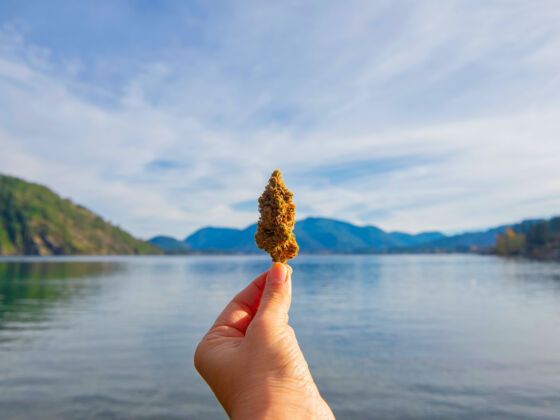JANUARY WAS THE FIRST MONTH THAT legalized marijuana was taxed in the state of Oregon. The state, which legalized marijuana by a 2014 ballot measure, had allowed the first three months of recreational pot sales to be tax-free, and then, starting in January, imposed a 25% sales tax (though it will be dropped down to 17% later this year).
The state raked in a staggering $3.48 million in tax revenue in a single month.
